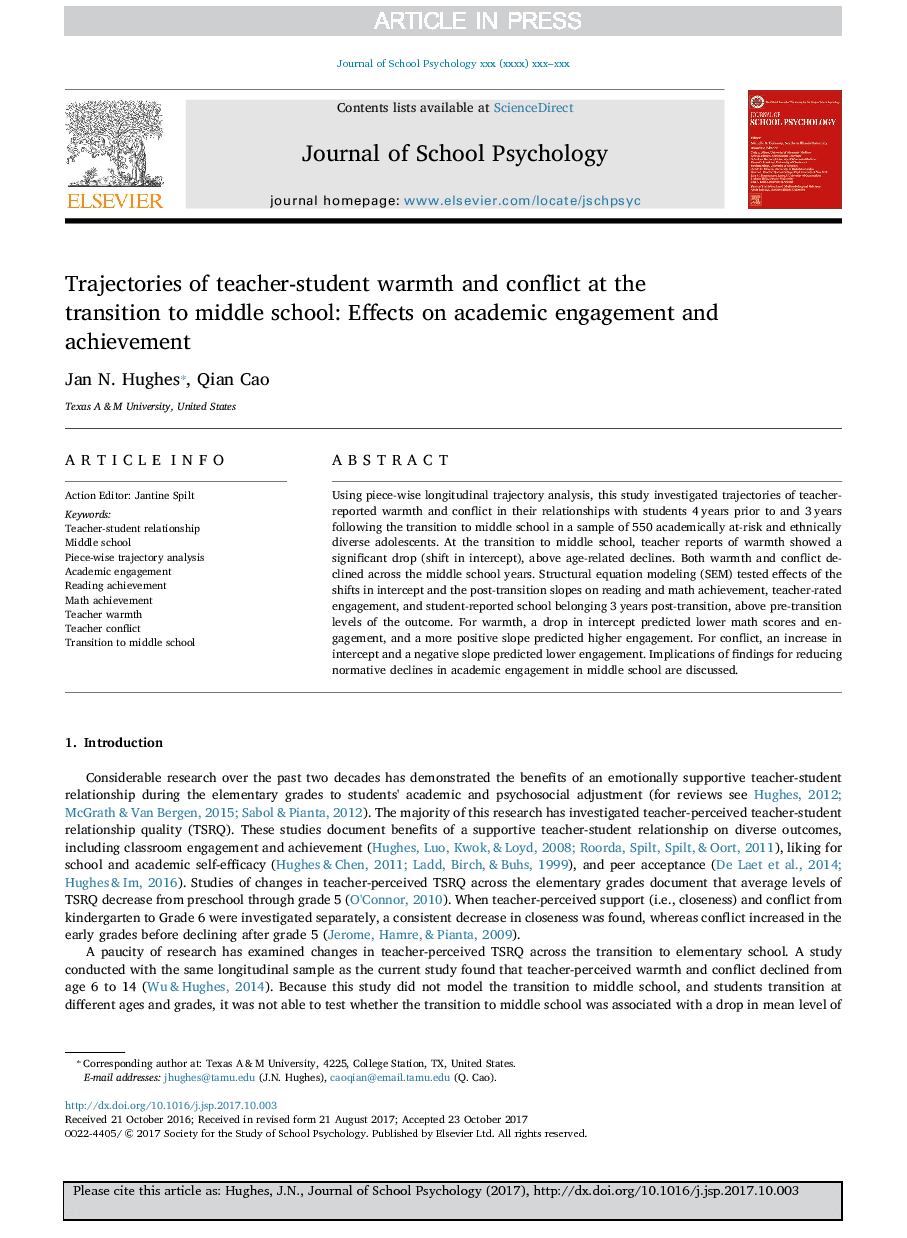ترجمه فارسی عنوان مقاله
گرایش و تعارض گرامر معلم و دانش آموز در انتقال به مدرسه راهنمایی: تأثیر در تعامل و موفقیت تحصیلی
عنوان انگلیسی
Trajectories of teacher-student warmth and conflict at the transition to middle school: Effects on academic engagement and achievement
| کد مقاله | سال انتشار | تعداد صفحات مقاله انگلیسی |
|---|---|---|
| 133552 | 2018 | 15 صفحه PDF |
منبع

Publisher : Elsevier - Science Direct (الزویر - ساینس دایرکت)
Journal : Journal of School Psychology, Volume 67, April 2018, Pages 148-162
ترجمه کلمات کلیدی
رابطه معلم و دانش آموز مدرسه متوسطه، تجزیه و تحلیل مسیر قطعه قطعه. تعامل علمی، دستاورد خواندن، دستاورد ریاضی، گرمای معلم، تعارض معلم، گذار به مدرسه راهنمایی،
کلمات کلیدی انگلیسی
Teacher-student relationship; Middle school; Piece-wise trajectory analysis; Academic engagement; Reading achievement; Math achievement; Teacher warmth; Teacher conflict; Transition to middle school;

